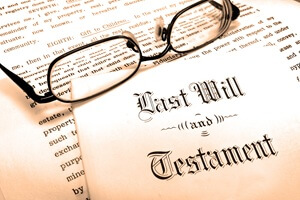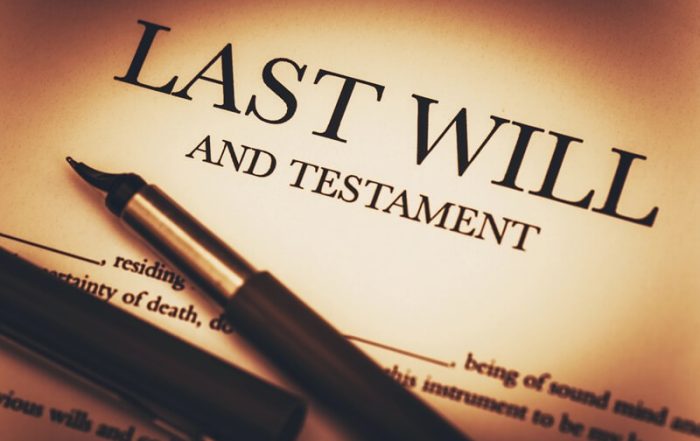The Legal Grounds For Contesting A Will In California
Planning your estate or reviewing the wishes of a loved one often involves a great deal of trust in the process. A will is meant to clearly express a person’s intentions about their estate. Yet, disputes can arise when beneficiaries or potential heirs feel that the document does not represent the true desires of the deceased.
California law allows individuals to contest a will when they believe it was made under improper conditions or does not meet legal standards. This article will cover the legal grounds for contesting a will in California. You’ll gain a comprehensive understanding of situations like undue influence, fraud, or improper execution, alongside practical advice on the next steps.
Understanding Testamentary Capacity
The concept of testamentary capacity lies at the heart of whether a will is legally valid. Simply put, testamentary capacity means that the person creating the will understands what they are doing. They must know the nature and extent of their assets, recognize their potential heirs, and understand how their choices will affect those heirs. Without this clarity, the will’s validity can be called into question.
For example, a person suffering from severe cognitive impairment or dementia may lack the mental ability to grasp the implications of their actions. This opens the door for legal challenges to the will. A lack of capacity may also result from temporary conditions, such as intoxication or certain illnesses.
Courts often rely on evidence such as medical records, witness accounts, and professional testimony to determine capacity. Suppose a will is deemed invalid due to a lack of capacity. In that case, the estate may either revert to an earlier will or, if none exists, be distributed according to California’s intestacy laws.
The next major consideration involves the influence of others on the testator during the drafting of the will.
Undue Influence: When Persuasion Becomes Coercion
A will should reflect the genuine wishes of the person who created it. Unfortunately, undue influence can occur when someone manipulates the testator into making decisions that they would not have made freely. In California, proving undue influence requires showing that a trusted individual exploited their position to gain an unfair advantage.
Consider a situation where a dependent elderly person is isolated by a caregiver who pressures them to leave all assets to the caregiver. This could constitute undue influence if the caregiver controlled the person’s choices. Courts typically evaluate the relationship between the parties, the testator’s vulnerability, and any significant changes to the will that seem out of character.
Evidence of undue influence might include suspicious timing of changes to the will or a pattern of isolation by the alleged influencer. Suppose the court determines that undue influence occurred. In that case, it can invalidate part or all of the will, ensuring the estate is distributed fairly.
Another way a will’s validity can be challenged is through acts of fraud or forgery.
Fraud & Forgery: Deception In Will Creation
Fraud and forgery represent intentional deception that undermines a will’s integrity. Fraud occurs when the testator is tricked into signing a document they don’t fully understand. At the same time, forgery involves falsifying the testator’s signature or creating a fake will entirely. These acts of deception are serious legal violations.
Imagine someone presenting an elderly individual with a document described as a financial contract. However, this document is actually a will that names the presenter as the sole beneficiary. Such deceit can lead to a court invalidating the will if proven. Similarly, forged signatures or fabricated documents may require forensic analysis to confirm their authenticity.
Challenging fraud or forgery often requires strong evidence, including professional testimony or document analysis. The courts treat these cases with utmost seriousness to preserve the legitimacy of estate planning.
While fraud and forgery involve deception, wills created under duress present a different form of coercion.
Duress: Wills Made Under Threat
A valid will reflects the testator’s free will, but duress occurs when threats or coercion are used to force someone into creating or changing a will. This can happen when a person feels they have no other choice due to intimidation, threats, or actual harm.
For example, imagine someone being threatened with the safety of their loved ones if they don’t revise their will. This removes the free choice that should accompany estate planning. California courts take claims of duress seriously and investigate the circumstances surrounding the will’s creation.
Proving duress requires demonstrating the use of threats and showing how they influenced the testator’s decisions. Addressing duress protects the integrity of estate planning and ensures justice for all parties involved.
Another factor to examine is whether the will meets the formal requirements of execution.
Improper Execution: Adhering To Formalities
California law requires that wills meet strict execution standards to be considered valid. These include having the testator’s signature and the signatures of at least two witnesses. Any deviation from these formalities can cast doubt on the document’s legitimacy.
For example, a will signed without witnesses or created entirely as a verbal agreement may not hold up in court. These failures could invalidate the entire will, making proper execution a critical element of any valid estate plan.
Addressing improper execution ensures that the testator’s wishes are honored per California law. Moving on, errors within the will’s contents can also serve as grounds for legal challenges.
Mistake: Errors That Affect Intent
Mistakes in a will can create unintended consequences, leading to disputes among heirs or beneficiaries. These errors often occur when the testator misunderstands the legal effect of specific language or when clerical errors misrepresent their true intentions.
Consider a situation where a testator accidentally omits a key beneficiary due to unclear wording. This could lead to legal challenges aimed at rectifying the mistake. Courts examine these cases closely, seeking to uphold the testator’s actual wishes wherever possible.
Correcting mistakes in a will ensures that the estate reflects the testator’s genuine intent. However, certain clauses in wills, such as no-contest clauses, may complicate challenges.
No-Contest Clauses: Risks Of Challenging A Will
No-contest clauses are provisions designed to discourage beneficiaries from disputing a will. These clauses often penalize challengers by disqualifying them from receiving their inheritance if their challenge fails.
California law allows challenges to proceed despite these clauses under specific circumstances, such as when the will is believed to result from fraud or undue influence. Courts carefully weigh the validity of these clauses to strike a balance between honoring the testator’s wishes and protecting against wrongful actions.
Understanding the implications of no-contest clauses helps beneficiaries decide whether pursuing a challenge is worth the potential risks. To succeed, challengers must present compelling evidence, which is discussed next.
The Role Of Evidence In Will Contests
Evidence is the backbone of any successful will contest, as courts rely on it to evaluate claims. From medical records to witness testimonies, the quality of evidence often determines the outcome of a case.
For example, medical documents showing a testator’s cognitive decline can support claims of incapacity. Similarly, emails or recorded conversations may reveal undue influence or fraud. Building a strong case requires gathering all relevant documentation and presenting it effectively.
Clear, convincing evidence ensures that courts have the tools to reach fair decisions. Acting quickly is also essential, as discussed in the following section.
Statute Of Limitations: Timing Your Challenge
California law imposes strict deadlines for contesting a will. These limits often depend on when probate proceedings begin, emphasizing the importance of timely action.
Failing to file within the statute of limitations can result in the dismissal of your case, regardless of its merits. Acting promptly ensures your concerns are addressed before the window for action closes.
Understanding deadlines helps potential challengers preserve their legal rights. Seeking professional assistance early can be invaluable, which is why Los Angeles Probate Attorneys are here to help.
Los Angeles Probate Attorneys: Your Advocates In Will Contests
Contesting a will is a legal process requiring careful preparation and strategy. Los Angeles Probate Attorneys assist clients in navigating these challenges, ensuring their interests are protected every step of the way.
From evaluating the validity of a will to gathering evidence, our attorneys offer personalized services tailored to the unique circumstances of each case. Clients benefit from clear communication and a commitment to achieving favorable outcomes.
If you believe you have grounds to contest a will, Los Angeles Probate Attorneys are ready to provide guidance. Contact our team today to schedule a complimentary evaluation and begin resolving your estate concerns.
Contesting a will in California requires a clear understanding of legal grounds such as fraud, undue influence, and mistakes. By acting promptly and presenting strong evidence, challengers can seek justice while protecting their loved one’s wishes.
Los Angeles Probate Attorneys offer the guidance and support necessary to navigate this legal process confidently. Our team ensures that your case is handled with care, helping you secure a fair resolution. Protect your rights and preserve your loved ones’ legacies with the proper legal support.









